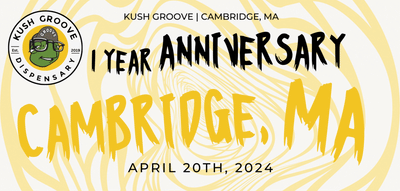
An In-Depth Exploration of Global Cannabis Laws
One of the oldest plants cultivated by mankind is Cannabis sativa. It has been used for millennia for its diverse applications; ranging from textiles to medicinal purposes. However, in particular, it's one strain has caught the attention of both connoisseurs and researchers alike: Kush. It is derived from the Cannabis indica species. Kush has been making waves for its potent effects and diverse applications.
Despite its widespread popularity, the legality of Kush is far from consistent globally. There exists a web of complex, evolving laws that govern its use, cultivation, and distribution, leaving many unsure of the exact legal status of Kush.
This article aims to unravel this complex tapestry, providing an in-depth analysis of the legal landscape of Kush across the globe.

Kush Vs. The World: The Definition of Kush
Kush is a term that originated from the Hindu Kush mountain range that spans across Afghanistan, Pakistan, and India. In slang terms, it refers to a subset of strains of the Cannabis indica species of the marijuana plant. And yes, Kush is the same as marijuana. What distinguishes Kush from other strains is its unique aroma, flavors, and profound relaxing effects. Its distinctive qualities have made it a preferred choice for many medical and recreational users, leading to a significant presence in global cannabis culture.
A Brief History of Kush
Kush, a strain from the Cannabis indica species, was originally cultivated in the harsh climates of the Hindu Kush mountain range. Gaining popularity during the 1960s and 70s due to its unique aromas and robust effects, Kush rapidly spread across the globe. However, with the intensification of the War on Drugs in the late 20th century, restrictions on Kush use and cultivation escalated. Today, a complex web of laws across different countries governs its use, reflecting the strain's controversial history.
The Legal Status of Kush Worldwide
The legal landscape for Kush, like cannabis in general, is highly varied worldwide, reflecting a myriad of cultural, historical, and socio-political influences. From countries that have fully legalized cannabis to regions where it remains strictly prohibited, understanding the status of Kush requires an exploration on a regional basis.
The Legal Status in the United States
Despite federal laws classifying cannabis as a Schedule I drug, there has been a progressive shift towards decriminalization and legalization at the state level.
- Federal Law: Federal law still considers cannabis, including Kush, as illegal. However, enforcement of this law has become less stringent in states where cannabis has been legalized.
- State by State Overview: As of 2023, a total of 36 states and Washington D.C. have legalized cannabis for medicinal use, while 18 of these also permit recreational use. Colorado and Washington were the pioneering states to legalize recreational cannabis in 2012.
The Legal Status in Europe
In Europe, the legal status of Kush varies significantly from country to country.
- Overview of European Laws: Some nations like Portugal and the Netherlands have decriminalized all drugs, whereas others like Sweden and France maintain stringent anti-cannabis laws.
- Individual Country Analysis: The UK, for example, has maintained a hard stance against recreational use but has allowed for cannabis to be prescribed for certain medical conditions since 2022.
The Legal Status in Other Regions
- Asia: In Asia, laws are generally more stringent, with the exception of countries like Thailand that have legalized medical cannabis use.
- Africa: In South Africa, private use and cultivation of cannabis were decriminalized in 2018.
- Australia and Oceania: Australia has allowed the use of medicinal cannabis since 2016, while New Zealand narrowly missed legalizing recreational use in a 2020 referendum.
- South America: Uruguay made headlines in 2013 when it became the first country in the world to fully legalize cannabis. Today, it is also legal in Colombia for adult recreational use.
The Medical and Recreational Use of Kush
From easing physical ailments to recreational use, Kush has established a significant presence in many societies.
Medical Applications of Kush
Kush strains, renowned for their high CBD content, have been used to alleviate symptoms of chronic pain, insomnia, and anxiety. A comprehensive survey published in the Journal of Pain in 2021 showed that 70% of patients reported effective pain relief with cannabis use.
Recreational Use of Kush
Kush's recreational popularity stems from its potent relaxing effects. However, users must exercise caution as overconsumption can lead to negative side effects, including dependency.
The Implications of Legalizing Kush
Legalization carries with it a host of potential economic, social, and health implications. The legal cannabis market presents a significant economic and social implications, which also presents great opportunities. Grand View Research projected in 2022 that the global legal marijuana market could reach $73.6 billion by 2027. Legalizing Kush could contribute to shifting social perceptions, leading to more open dialogues about its safe and responsible use.
The Health Implications
Legalization also allows for stricter quality control, ensuring users have access to safe, lab-tested products, and protecting them from harmful contaminants.
Controversies and Debates Around Kush Legalization
Kush legalization is not without its controversies, as policymakers must strike a delicate balance between economic interest, individual liberties, and public health.
Pros and Cons of Legalization
Opponents of legalization often cite concerns over increased addiction rates and potential mental health implications. Supporters argue for individual freedoms, potential medical benefits, and the economic boon of a new taxable industry.
Public Opinion on Legalization
Public sentiment is shifting towards favoring legalization. A 2021 survey by Pew Research Center found that 60% of U.S. adults believe marijuana should be legal for both medical and recreational use.
The Role of Government in Kush Regulation
Government bodies have the crucial task of regulating this new industry to ensure that public health interests are preserved amidst potentially lucrative commercial opportunities.
Conclusion
The global perspective on Kush legality is continually evolving. A more nuanced understanding of the medical benefits, potential economic gains, and societal implications is needed to guide future policy.
While current trends suggest a shift towards more liberal cannabis policies, the journey towards widespread legalization will likely be a long and contentious one. As the world continues to grapple with these issues, it is clear that a balanced approach, prioritizing scientific evidence and public health, is needed.






